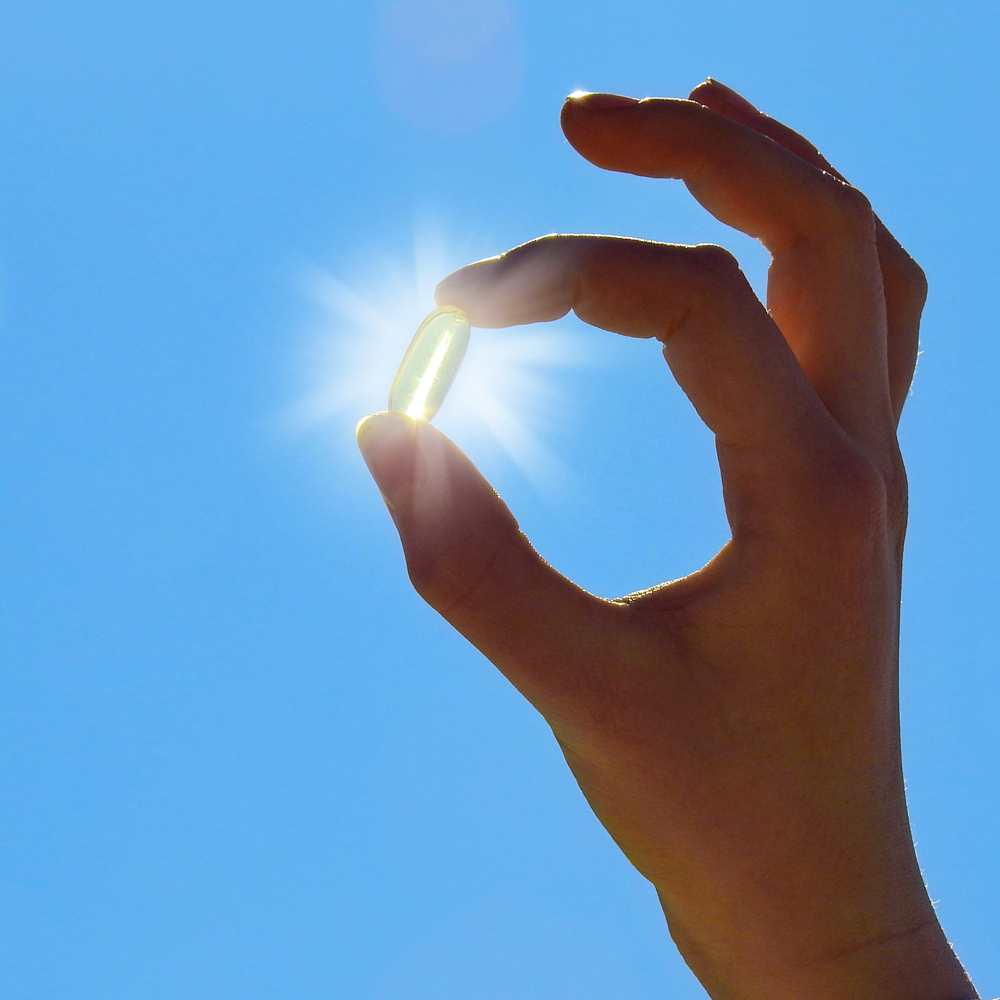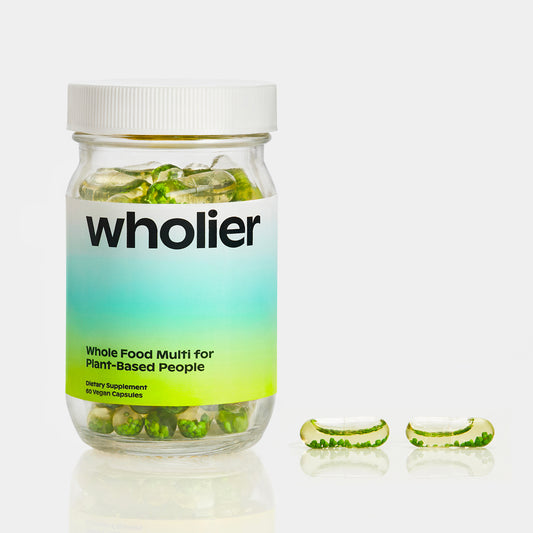
Vegan Vitamin D2 vs. Vitamin D3: Which is Better and Why it Matters
Uncover vegan vitamin D2 and D3's distinct qualities, their impact on absorption, and tips for choosing health-boosting vegan D3 supplements.
Vitamin D is an essential nutrient that plays a crucial role in maintaining healthy bones, supporting the immune system, and regulating various bodily processes. However, not all forms of vitamin D are created equal, especially when it comes to plant-based diets. In this article, we'll explore the differences between vegan vitamin D2 and vitamin D3, why vitamin D3 is generally considered superior in terms of absorption, and how to find vegan-friendly vitamin D3 supplements. We'll also dive into the scientific research and clinical studies supporting these claims to help you make an informed decision about your vitamin D intake.
What is Vitamin D2 and What Makes it Vegan?
Vitamin D2, also known as ergocalciferol, is a form of vitamin D that is synthesized by plants, fungi, and yeast when exposed to ultraviolet (UV) light. It is commonly found in fortified plant-based foods such as non-dairy milk, cereals, and mushrooms exposed to UV light (1). Vitamin D2 is considered vegan because it does not involve any animal-derived ingredients or processes.
What is Vitamin D3 and How is it Sourced?
Vitamin D3, or cholecalciferol, is another form of vitamin D that is synthesized when the skin is exposed to sunlight. It is also found in animal-derived food sources, such as fatty fish, liver, and egg yolks. The most common source of vitamin D3 in supplements is lanolin, a wax extracted from sheep's wool, which makes it vegetarian but not vegan. However, vegan-friendly D3 supplements are available, sourced from lichen or microalgae (2).
Why is Vitamin D3 Considered Better than Vitamin D2 from an Absorption Perspective?
Several clinical studies and scientific research suggest that vitamin D3 is more effective in raising and maintaining blood levels of the active form of vitamin D (25-hydroxyvitamin D) than vitamin D2 (3). This difference in efficacy is likely due to the fact that vitamin D3 is chemically closer to the form of vitamin D produced by the human body when exposed to sunlight.
A study published in the American Journal of Clinical Nutrition found that vitamin D3 was about 87% more potent in raising and maintaining blood levels of 25-hydroxyvitamin D than vitamin D2 (4). Another study published in the Journal of Endocrinology and Metabolism found that vitamin D3 had a greater impact on overall vitamin D status, with a 56% higher increase in blood levels compared to vitamin D2 (5). These findings suggest that vitamin D3 is generally more effective in supporting optimal vitamin D levels in the body.
How Can You Find Vegan-Friendly Vitamin D3 Supplements?
If you're looking for a vegan-friendly vitamin D3 supplement, it's essential to read the labels carefully and look for specific sources of vitamin D3. As mentioned earlier, the most common source of vitamin D3 in supplements is lanolin, which is derived from sheep's wool. However, vegan vitamin D3 supplements are available, sourced from either lichen or microalgae. These plant-based sources provide a sustainable and cruelty-free option for individuals following a vegan lifestyle.
When browsing supplements, look for phrases such as "vegan vitamin D3," "vitamin D3 from lichen," or "vitamin D3 from microalgae" on the label. Additionally, you can search for reputable brands that specialize in plant-based supplements, as they are more likely to offer vegan-friendly options.
When it comes to choosing between vegan vitamin D2 and vitamin D3, the research suggests that vitamin D3 is generally more effective in raising and maintaining optimal blood levels of the active form of vitamin D. While vitamin D2 is vegan and can still provide some benefits, vitamin D3 appears to be superior in terms of absorption and efficacy. Thankfully, there are vegan-friendly vitamin D3 supplements available, sourced from lichen or microalgae, allowing you to make a conscious choice that aligns with your values and dietary preferences.
By understanding the differences between vegan vitamin D2 and vitamin D3, as well as the scientific research supporting their benefits and absorption rates, you can make an informed decision about your vitamin D supplementation. This knowledge will enable you to support your overall health and well-being while adhering to a plant-based lifestyle.
Sources:
(1) Tripkovic, Laura, et al. "Comparison of Vitamin D2 and Vitamin D3 Supplementation in Raising Serum 25-Hydroxyvitamin D Status: A Systematic Review and Meta-Analysis." The American Journal of Clinical Nutrition, vol. 95, no. 6, 2012, pp. 1357-1364.
(2) U.S. National Library of Medicine. "Vitamin D3." MedlinePlus, 2021, https://medlineplus.gov/druginfo/natural/929.html.
(3) Houghton, Lisa A., and Reinhold Vieth. "The Case against Ergocalciferol (Vitamin D2) as a Vitamin Supplement." The American Journal of Clinical Nutrition, vol. 84, no. 4, 2006, pp. 694-697.
(4) Heaney, Robert P., et al. "Vitamin D3 Is More Potent Than Vitamin D2 in Humans." The Journal of Clinical Endocrinology & Metabolism, vol. 96, no. 3, 2011, pp. E447-E452.
(5) Trang, Hoang M., et al. "Evidence That Vitamin D3 Increases Serum 25-Hydroxyvitamin D More Efficiently Than Does Vitamin D2." The American Journal of Clinical Nutrition, vol. 68, no. 4, 1998, pp. 854-858.




